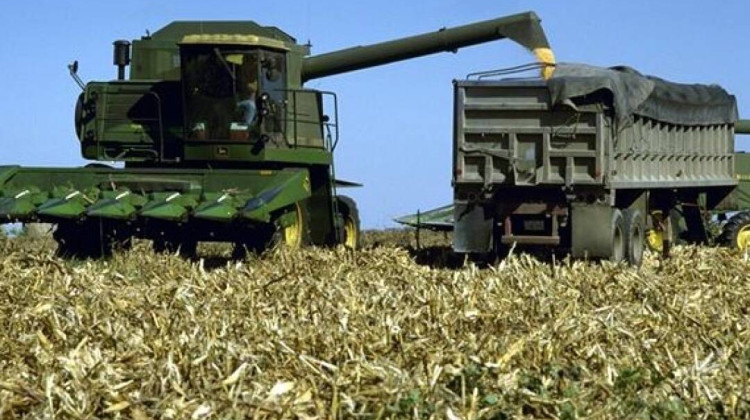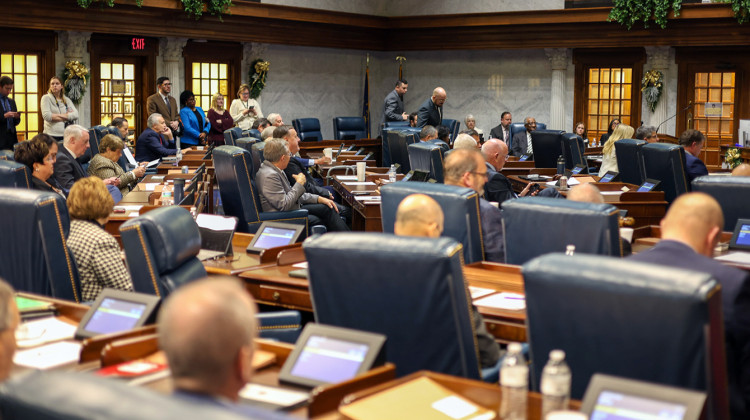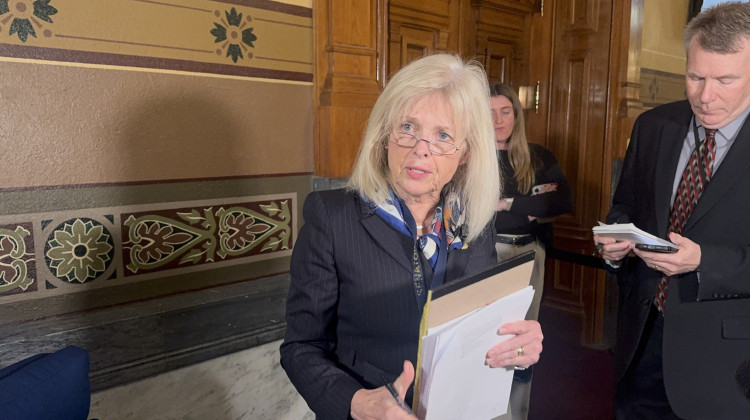A legislative study committee took nearly six hours of public testimony and heard a slew of policy recommendation Tuesday on confined animal feeding operations, or CAFOs.
About 100 people showed up to provide comments as the committee considers CAFO and animal agriculture regulations in Indiana.
Malcom DeKryger, CEO of Belstra Milling, which provides animal feed to Hoosier farms, told a story about two brothers in Pulaski County who wanted to expand their family’s operations, but were denied a CAFO because of restrictive zoning ordinances.
“Even in spite of meeting all of those requirements, it was turned down,” says DeKryger. “That was very hurtful for the family.”
Most who testified were against CAFOs, including farmer and restaurateur Pete Eshelman. He says the state goes too far in protecting CAFOs to the detriment of traditional agriculture.
“A CAFO is not a corn field. A CAFO is a factory farm,” says Eshelman. “They have the potential to discourage economic development, decrease property values.”
Many Hoosiers provided specific policy recommendations to the committee.
Some, such as Indiana Farm Bureau’s Justin Schneider, say the state’s current regulatory regime provides economic sustainability for Hoosier farmers.
But most say limited state rules have led to patchwork local regulations that don’t account for CAFOs’ side effects — poor water quality, noxious odor, and declining property values.
Former Henry County zoning administrator Rachel Conner says her county’s new rules for CAFO permitting could be a model for the state or other counties.
“It’s two-fold: protecting the public and protecting the animals, and finding a good balance as to where they belong,” Conner says.
Others who testified suggested mandatory buffer zones around waterways and a moratorium on new construction. A handful of animal welfare advocates argued CAFOs are cruel and suggested more Hoosiers adopt vegan diets.
The committee will meet once more next month as lawmakers prepare a report on the issue for the General Assembly.
 DONATE
DONATE






 View More Articles
View More Articles



 Support WFYI. We can't do it without you.
Support WFYI. We can't do it without you.